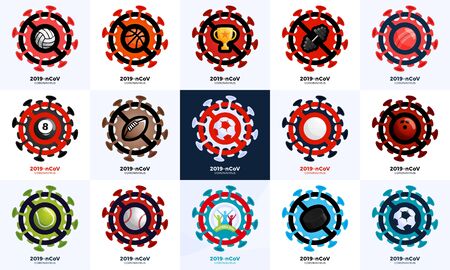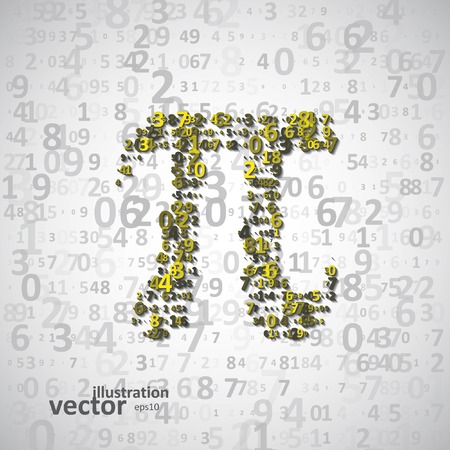Introduction: The Digital Shift in Divination
In recent years, Britain has witnessed a remarkable transformation in the way traditional divinatory practices are accessed and experienced. Once the reserve of in-person consultations, tarot readings, astrology charts, and other forms of spiritual guidance are now readily available through digital platforms. This shift is not merely technological; it reflects changing attitudes towards spirituality and self-exploration in modern British society. Online divination services have emerged as a bridge between age-old wisdom and contemporary life, allowing individuals from Inverness to Cornwall to seek guidance at their convenience. By examining the transition of these practices into the digital realm, we can better understand how Britons are integrating tradition with technology, setting the stage for a new era of personal discovery and community engagement.
2. Historical Context: Divination in British Culture
The roots of divination in Britain stretch deep into the nations history, reflecting a rich tapestry of tradition, folklore, and spiritual practice. From the enigmatic Druids of ancient Celtic societies to the fortune-tellers and wise women of rural villages, divinatory arts have long served as a means for British people to seek guidance in uncertain times. The practice of tarot reading, palmistry, and mediumship found particular popularity during the Victorian era, when spiritualism captivated the public imagination and séances became fashionable among both the upper and working classes. Over time, these traditions have evolved but remain an enduring part of British cultural life.
Key Forms of Traditional Divination in Britain
| Form of Divination | Description | Cultural Relevance |
|---|---|---|
| Tarot Reading | Using illustrated cards to interpret personal situations and future possibilities. | Popularised in Victorian parlours; now mainstream both online and offline. |
| Palmistry | Reading lines on the hand to predict character traits and fate. | Common at fairs, markets, and private consultations throughout UK history. |
| Mediumship/Spiritualism | Contacting spirits for messages from the beyond. | Grew rapidly in 19th-century Britain, influencing literature and social movements. |
| Astrology | Interpreting celestial positions to provide life guidance. | Featured in newspapers and widely consulted for personal advice. |
Divination’s Role in Community Life
Historically, diviners often held respected positions within their communities, acting not just as fortune-tellers but as counsellors and confidants. In rural areas, wise women or cunning folk were frequently sought out for help with everything from health concerns to relationship issues. These practitioners blended folk remedies with spiritual insight, further embedding divinatory practices into everyday British life.
Cultural Continuity Into the Digital Age
Despite technological advancements and changing attitudes towards spirituality, divination has maintained its cultural significance in Britain. Today, online platforms offer modern interpretations of these age-old practices, allowing people across the country to access traditional guidance with unprecedented convenience. This seamless blend of heritage and technology demonstrates the enduring appeal—and adaptability—of divination within British culture.

3. From Parlour Rooms to Online Platforms
The landscape of divination in Britain has shifted dramatically over the past few decades. Traditionally, people seeking guidance would visit a local psychic, tarot reader, or medium—often in the comfort of intimate parlour rooms adorned with velvet drapes and flickering candles. These face-to-face sessions carried an air of ritual and personal connection, with clients frequently returning to trusted readers within their communities. However, with the advent of digital technology, these practices have undergone significant transformation.
Online divination services have proliferated across Britain, making spiritual guidance more accessible than ever before. Today, individuals can consult with astrologers, tarot readers, and clairvoyants from virtually anywhere, using video calls, instant messaging, or even AI-driven chatbots. This evolution has broken down traditional barriers—geographical distance, social stigma, and scheduling constraints—that once limited access to such services. For many Britons, online platforms offer both convenience and discretion, particularly for those who may be hesitant to seek guidance publicly or who live outside major urban centres.
Technology has not only broadened access but also diversified the range of services available. Where once one might choose between palmistry or tarot at a local fair, online platforms present a veritable smorgasbord of options, from rune readings to numerology and beyond. Many practitioners now maintain professional websites or participate in established online marketplaces, allowing clients to browse reviews, compare offerings, and find a reader whose approach resonates with them personally.
Despite this digital expansion, elements of traditional British divination remain evident. Many online practitioners strive to recreate the warmth and trust of in-person readings, incorporating video calls that mirror the intimacy of a parlour session. Others draw upon centuries-old symbolism and folklore, ensuring that the distinctly British character of these practices endures amid technological change. In this way, the evolution from parlour rooms to online platforms represents not just a shift in medium, but an ongoing dialogue between heritage and innovation.
4. Popular Online Divination Services in Britain
The UK’s fascination with divination has seamlessly transitioned into the digital era, with a wide variety of online platforms now offering traditional guidance at the click of a button. British users can easily access an array of services, each catering to different spiritual interests and curiosities. Below, we survey some of the most prevalent types of digital divination available through UK-based platforms.
Tarot Readings
Tarot remains a staple of British divinatory practice, both offline and online. Many websites and apps now connect users with experienced tarot readers for live video calls, chat sessions, or even instant email readings. These services often feature British practitioners well-versed in both traditional tarot symbolism and contemporary issues faced by clients across the UK.
Astrology Consultations
Astrology continues to enjoy widespread popularity, with numerous British astrologers offering natal chart readings, daily horoscopes, and compatibility analyses online. These services are tailored to reflect local time zones, seasonal changes, and British cultural touchstones, making the insights more relatable for UK audiences.
Rune Casting
Though rooted in ancient Norse and Anglo-Saxon traditions, rune casting has found new life on digital platforms. Several UK-based sites offer virtual rune draws and personalised interpretations from British rune masters, allowing users to explore this mystical practice from the comfort of their own homes.
Mediumship and Spiritual Readings
Britain’s rich spiritualist heritage is reflected in the availability of online mediumship. UK platforms connect clients with mediums who claim to communicate with spirits or offer guidance from beyond, often providing sessions via secure video or audio calls. These services are particularly popular in regions with a strong tradition of spiritualist churches and communities.
Comparison of Key Online Divination Services in the UK
| Service Type | Typical Delivery Method | Notable Features | UK-Centric Providers |
|---|---|---|---|
| Tarot Readings | Live chat, video call, email | Bespoke spreads, reader profiles, quick turnaround | Psychic Sofa, TheCircle |
| Astrology | Personalised reports, live sessions | Birth chart analysis, compatibility readings | Astrology.co.uk, Astrolutely |
| Rune Casting | Virtual draws, written interpretations | Anglo-Saxon rune focus, historical context | Runes4U, The Rune Site |
| Mediumship | Video/audio call, chat | Spirit contact, evidential readings | British Mediums Online, Spiritualist Mediums UK |
The Influence of Local Culture
Across these offerings, UK-based online divination platforms distinguish themselves by integrating British folklore, seasonal festivals like Samhain and Beltane, and regionally relevant advice. This cultural resonance ensures that digital divination in Britain is not only accessible but also deeply connected to the traditions and values of its users.
5. Cultural Attitudes and Ethical Considerations
As online divination services become more prevalent across Britain, it is crucial to examine how these practices intersect with local culture, law, and ethical expectations. The British public’s perception of divination—whether tarot readings, astrology, or rune casting—has always straddled a line between curiosity, scepticism, and respect for tradition. With the shift to digital platforms, these attitudes are being renegotiated in real time.
Public Perception: Between Tradition and Modernity
Britons have a long-standing history of engaging with fortune-telling and mystical practices, often viewing them as sources of entertainment or spiritual comfort rather than concrete guidance. Online divination has carried this duality into the digital age. While some users approach such services with an open mind and genuine interest, others treat them with a healthy dose of British scepticism, wary of potential exploitation or charlatanism.
Legal Frameworks and Consumer Protection
The legal status of online divination in the UK is shaped by consumer protection laws and advertising standards. Service providers must adhere to regulations set out by bodies like the Advertising Standards Authority (ASA) and Trading Standards. Claims made during readings must avoid misleading the public; disclaimers are common, making it clear that services are for entertainment purposes only. Furthermore, data privacy is paramount, especially given the sensitive nature of client queries and personal information handled through online platforms.
Ethical Challenges in the Digital Era
The move from face-to-face consultations to online interactions raises fresh ethical concerns. Ensuring transparency about fees, qualifications of practitioners, and the limitations of divinatory advice is essential to maintaining trust. Issues such as the potential for addiction to frequent readings or undue emotional influence over vulnerable individuals also require careful consideration. Many reputable British practitioners now voluntarily subscribe to codes of ethics or join professional associations to reassure clients of their integrity.
Navigating Cultural Sensitivity and Responsibility
Ultimately, the integration of traditional guidance into modern digital life compels both practitioners and clients in Britain to engage thoughtfully with questions of authenticity, consent, and respect for individual belief systems. As online divination continues to evolve within British society, ongoing dialogue about cultural attitudes and ethical standards will help ensure these services remain both relevant and responsible in the digital age.
6. Community, Connection, and the Role of Social Media
The rise of online divination services in Britain has not only transformed how individuals seek spiritual guidance but has also fostered new forms of community and connection. Through digital platforms, practitioners and clients are able to transcend geographical boundaries, creating networks that are as supportive as they are diverse. Social media, in particular, plays a pivotal role in this transformation by providing virtual spaces where like-minded people can gather, share experiences, and offer peer support.
Many British divination practitioners use platforms such as Facebook groups, Twitter threads, and dedicated Discord servers to facilitate open dialogue about tarot readings, astrology, rune casting, and other traditions. These forums allow both seasoned professionals and curious newcomers to exchange insights, discuss techniques, and even troubleshoot challenges in their practice. The interactive nature of these communities encourages a collaborative approach to learning and growth, reflecting a distinctly British appreciation for dialogue and collective wisdom.
Moreover, social media amplifies access to trusted recommendations and word-of-mouth referrals. In a country where personal reputation carries significant weight, especially within spiritual circles, client testimonials and practitioner reviews shared online help build credibility and foster trust. For many users, seeing authentic feedback from fellow Britons provides reassurance and a sense of belonging before engaging with a service or practitioner.
Beyond knowledge sharing, online divination communities in Britain often organise virtual events such as live Q&A sessions, workshops, and themed group readings. These digital gatherings replicate the camaraderie found in traditional in-person circles while offering greater accessibility for those unable to attend due to distance or mobility issues. As a result, participation in the digital realm has become an essential component of modern British spiritual practice.
In summary, the integration of social media and online platforms into divination services is reshaping how Britons connect with both ancient traditions and each other. Through fostering inclusive spaces for conversation and support, digital divination is not only preserving but also evolving the rich tapestry of British spiritual life in the digital age.
7. Looking Forward: The Future of Divination in British Digital Culture
As Britain continues to embrace technological advancement, the future of online divination services appears both promising and complex. Emerging trends such as artificial intelligence-driven tarot readings, virtual reality spiritual experiences, and personalised astrology apps are rapidly gaining traction. These technologies offer users an increasingly immersive and tailored experience, blurring the lines between tradition and innovation.
The Role of Technology in Shaping Spiritual Practice
With AI algorithms now capable of analysing vast datasets on astrological patterns or Tarot symbolism, online platforms can deliver highly nuanced interpretations that rival—even complement—the insights offered by seasoned human practitioners. Moreover, chatbots and virtual assistants provide instant access to guidance at any hour, catering to a digitally native generation accustomed to on-demand support. Meanwhile, developments in VR and AR hint at a future where divination sessions might take place in rich, interactive digital environments that simulate ancient rituals or iconic British landscapes.
Cultural Adaptation and Community
Despite these technological leaps, the distinctly British approach to divination—marked by a blend of scepticism, humour, and reverence for tradition—continues to shape the evolution of these services. Online communities foster discussion and debate around the ethics, authenticity, and cultural relevance of digital fortune-telling. As more Britons turn to online platforms for guidance, there is growing interest in preserving local folklore and regional practices within these digital spaces, ensuring that uniquely British perspectives are not lost amid globalisation.
Challenges Ahead
The proliferation of online divination also raises questions about privacy, data security, and the potential commodification of personal spirituality. Regulatory bodies may need to address concerns around consumer protection and the responsible marketing of spiritual services. At the same time, practitioners must balance commercial viability with maintaining the integrity and depth of traditional practice.
A Dynamic Future
Ultimately, the intersection of British culture and digital technology is likely to produce a dynamic landscape for divination—one that respects heritage while embracing innovation. As new generations seek meaning in a rapidly changing world, online divination services will continue to adapt, reflecting the evolving values, anxieties, and hopes of British society itself.


